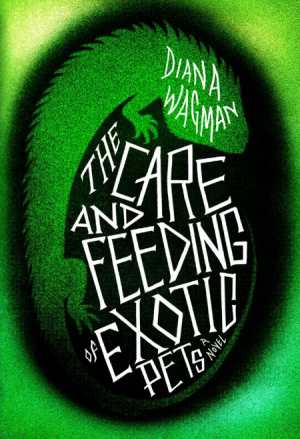Of Meth Labs and Megachurches
Inspiration Calls

Diana Wagman’s novel, The Care and Feeding of Exotic Pets, was published by Ig Publishing. She lives in Los Angeles.
Tell us about Los Angeles as a character in your book.
I grew up in various cities on the East Coast, and I lived for seven years in Utah, but I can say without reservation that LA is the strangest city on earth. People come here from all over the world to be superstars. Of course, 99 percent of them don’t make it, and that makes for some very weird, desperate, disappointed, and rich characters. Now I’m teaching in San Bernardino—about an hour from LA proper—and it is a new and different world out there. I’m very excited to explore the meth labs and megachurches of the “Inland Empire.”
You clearly have sympathy for your characters’ quirks. Is that a component of writing good fiction?
I think characters need to be as complicated and “truthful” as possible. We all have quirks and fetishes and moments of OCD. Those make us who we are; they’re the most interesting parts of any of us. In The Care and Feeding of Exotic Pets, Oren, the misguided, mixed up, creepy kidnapper, is my favorite character. In an odd way, he is most like me—I gave him all my worst traits and pushed them to an extreme. I love him for taking them from me.
What role does writing play in your life?
I know this is a cliché, but writing is my life. A couple days go by without writing, I’m antsy. More days pass, and I feel like my skin is inside out. My husband will tell me to “go write” because he can’t stand it. I teach and I enjoy it, I adore my husband and kids, I have giant, pain-in-the-ass, sweet dogs, but I’m thinking about writing all the time.
Which authors and books have influenced your writing?
Ernest Hemingway for his economy and the idea that what isn’t written is as important as what is; John Cheever for the troubled undercurrent beneath everything he writes, even his happiest stories; Janet Fitch: we write very differently, but we lived on the same street at one point, and as we pushed our kids home in their strollers she would talk to me about writing. She told me so many things, many of which I think about and use daily. I didn’t major in English or literature or creative writing in college; I don’t have an MFA. Reading lots of fiction and Janet Fitch and rewriting and rewriting and rewriting were/are my best education.
How can we become better fiction readers?
I think we need to look further than the front table at Barnes & Noble or the recommendations on Amazon. We should learn to peruse the stacks and try someone new. I know it’s nice to read what everybody is reading and be part of the conversation, but wouldn’t it be nicer to discover an author or a topic or a style and share that? Of course, I would say that because I’ve never been what everybody is reading. It’s not just sour grapes, however; I have discovered some amazing books by authors I’ve never heard of, The Pilgrim Hawk by Glenway Wescott for one, by wandering through my library’s shelves.
What are you working on now?
I’ve just finished a draft of something very new for me: a nonfiction novel. It’s a peculiar term I first heard to describe Armies of the Night by Norman Mailer. “Reality” novelized. My novel uses real news accounts and direct quotes from personalities and politicians, and follows faithfully a terrifying event that happened to me when I was young. Of course, I constantly wonder who the hell cares about me. The bigger story—which I hope is about the weight of our decisions—is more important.
Diana Wagman
